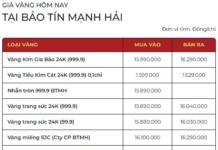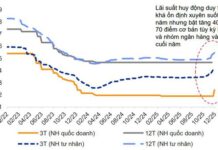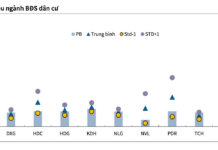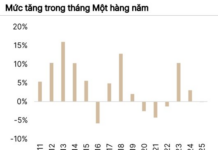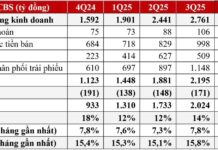
Illustration: Int
Speaking at a workshop on完善土地领域的法律 (Perfection of Laws in the Land Sector), Dr. Vu Dinh Anh, an economist and former deputy director of the Institute for Market-Price Research (Ministry of Finance), shared his thoughts on the recently passed 土地法 2024 (Land Law 2024). He pointed out that the law, which was passed earlier in 2024, is already being discussed for further revisions.
According to Dr. Anh, this is due to fundamental issues and challenges related to the core principles of land management, particularly in land pricing and state management of land prices. He outlined the following key points:
First, on land retrieval. Dr. Vu Dinh Anh emphasized the fundamental principle that the state should only retrieve land when absolutely necessary for public, non-commercial projects. For all other projects, whether state-owned or private, land acquisition should be based on voluntary negotiation and agreement between investors and land users, under the strict supervision of the state.
Second, on land use purposes. Dr. Anh highlighted that land use purpose is a core aspect of land management, impacting planning, allocation, leasing, changing purposes, and financial obligations. However, the current draft law does not address the concept of “多功能土地” (“multi-purpose land” or “mixed-use land”). In modern urban development, mixed-use land is an inevitable trend, and a mechanism is needed to balance the interests of the state, businesses, and people when land value increases due to infrastructure investment or change of land use.
Third, on land prices and valuation. Instead of maintaining the perspective of “determining land prices close to market prices,” Dr. Vu Dinh Anh suggested adopting the principle of “determining land prices according to market mechanisms.” He proposed building an objective, transparent, and professional land valuation market.
Dr. Vu Dinh Anh recommended completely eliminating the land price framework and land price table, which have caused many problems. Instead, only the specific land price determined by the competent authority at the time of land allocation, land leasing, or through land use right auction results should remain.
The land price used as the basis for financial obligations (taxes, fees, land use fees, land rent) should be determined by a mass valuation mechanism according to regions and land use purposes.
Fourth, on state management of land prices. Currently, land price management is scattered across various laws, including the Price Law, Land Law, and Asset Auction Law, leading to overlaps and inconsistencies. Dr. Anh argued that land price should not be understood simply as a value per square meter. The same unit price for a 10-square-meter plot cannot be compared to a 1,000-square-meter plot. Land price should be the value attached to a specific land lot, including legal, economic, historical, cultural, and even spiritual factors.
Fifth, on the concepts of valuation and appraisal. These two concepts are closely related and inseparable in practice. Without clear distinctions, there may be confusion between subjective and objective factors, and responsibilities between decision-makers and appraisal consultants may become blurred.
Based on these analyses, Dr. Anh emphasized the need for a more serious and comprehensive discussion about the fundamental issues in the draft Land Law revision. Only by ensuring consistency, synergy, and strict adherence to market principles in land valuation can we establish a transparent and effective legal framework that meets development requirements.”
Unlocking Affordable Housing Opportunities: Businesses Urge Amendments to the Land Law
The upcoming 2024 Land Law amendments aim to strike a delicate balance in land-related financial obligations and address the concerns arising from the steep rise in land prices over the past year. While businesses continue to grapple with the challenge of input costs for housing, the state is committed to curbing budget deficits and fostering a harmonious relationship between the state, businesses, and citizens.
Can Handwritten Contracts Lead to Official Land Ownership Papers?
Effective August 1, 2024, a land-use rights transfer that does not comply with legal regulations but bears the signatures of relevant parties must be accompanied by documentation of land-use rights as stipulated by law. This applies to transfers that occurred prior to the aforementioned date and have not yet received their red book certification.
The High Cost of Changing Land Use: A Burden on Livelihoods
“Recently, numerous households in Hanoi and Ho Chi Minh City faced challenges when attempting to change the purpose of their land use. “






